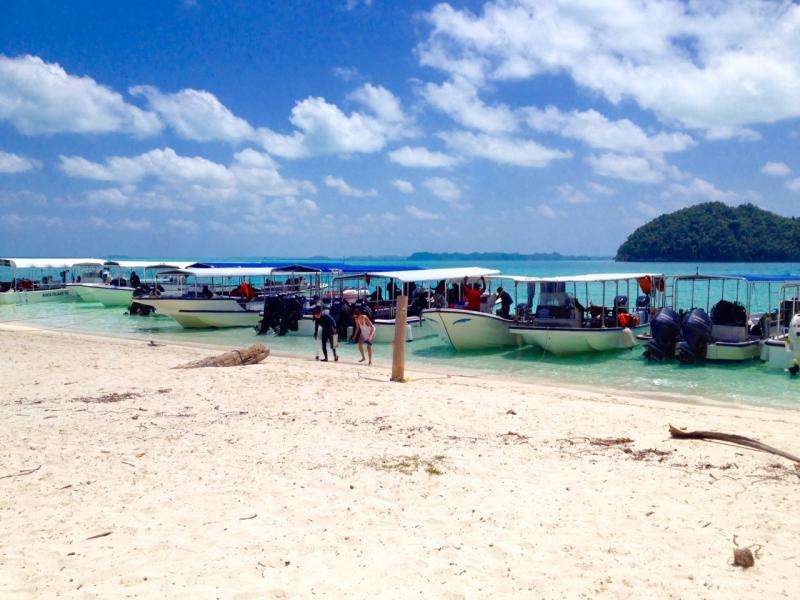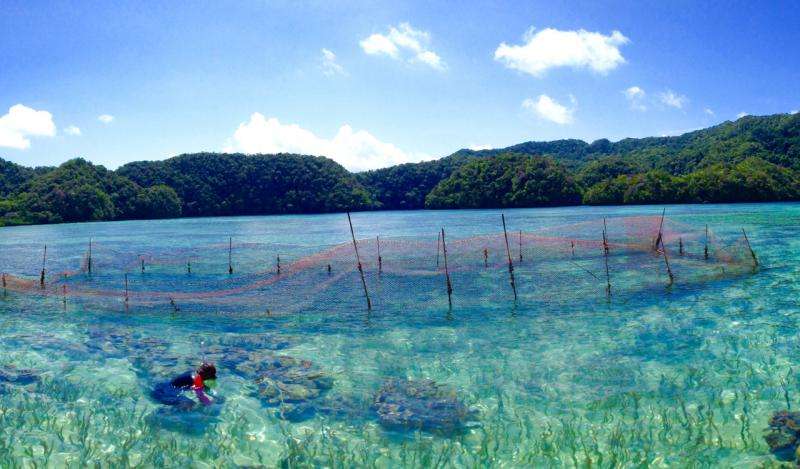Going diving in the tropics? Don't eat the reef fish!

Reducing tourist consumption of reef fish is critical for Palau's ocean sustainability, finds a new UBC study that suggests other small island nations might also consider adopting this strategy.
Climate change is expected to lead to sharp declines in Palau's reefs, and this new research suggests that the best tourism management strategy includes a more than 70 per cent reduction in the amount of reef fish eaten by visitors. These findings are relevant for sustainable development for other small island developing states that are likely to feel a significant impact from changes to the ocean.
"Palau's reefs and the fish communities they host are incredibly beautiful and recognized worldwide as a top diving destination," says lead author Colette Wabnitz, research associate with the Nippon Foundation-UBC Nereus Program at UBC's Institute for the Oceans and Fisheries. "Tourist numbers can reach nine times the local population and most come to enjoy the ocean. This puts enormous pressure on local marine resources that are central to local communities' culture, food security and livelihoods."
Palau, an archipelago of 700 islands in the South Pacific, is heavily dependent on tourism. Many studies have focused on damage that tourists cause reefs physically—from stepping on coral to interacting with wildlife—but this is the first to look at the effects of consuming the same fish that tourists are looking at through their dive masks.

The authors developed a social-ecological computer model to explore policy scenarios involving tourism, climate change, marine conservation, and local food security. Fish consumption emerged as playing an important role in future ecosystem declines.
The authors found that the health of reefs can be better maintained by shifting seafood consumption to open water fish, such as sustainably-harvested tuna, instead of reef fishes such as grouper, snapper, and parrotfish.
"Dining habits are removing important fish species from local reefs, and it's ironic that viewing these fish is the reason people come in the first place. This is an important step that can be taken now, rather than a future adaptation to climate change," says co-author Andrés Cisneros-Montemayor, Nippon Foundation-UBC Nereus Program manager. "Sustainable tourism, especially ecotourism, shouldn't threaten the food security of local people or their environment."
The study's recommendations, which align with the government's current proposal of developing an offshore national fishery as part of the recently designated National Marine Sanctuary, may allow Palau to protect reef systems and the industries that rely on them, as well as traditional local lifestyles intimately linked to catching and eating seafood.
"The ocean is central to Palau's life and customs; their seafood consumption must be maintained sustainably," says co-author Yoshitaka Ota, Nippon Foundation-UBC Nereus Program director of policy at the University of Washington. "The most important thing is for the people of Palau to keep engaging with the ocean, eating good fish, catching fish sustainably and protecting their way of life, tekoi ra belau—as they say in Palau. We are hoping that this study will be used for current Pacific Island Nation policy to address what they can do right now and for the future."
The study was published this week in Marine Policy.
More information: Colette C.C. Wabnitz et al. Ecotourism, climate change and reef fish consumption in Palau: Benefits, trade-offs and adaptation strategies, Marine Policy (2017). DOI: 10.1016/j.marpol.2017.07.022
Journal information: Marine Policy
Provided by University of British Columbia



















